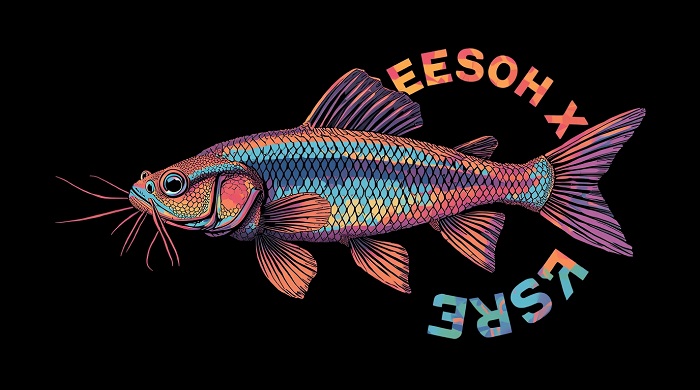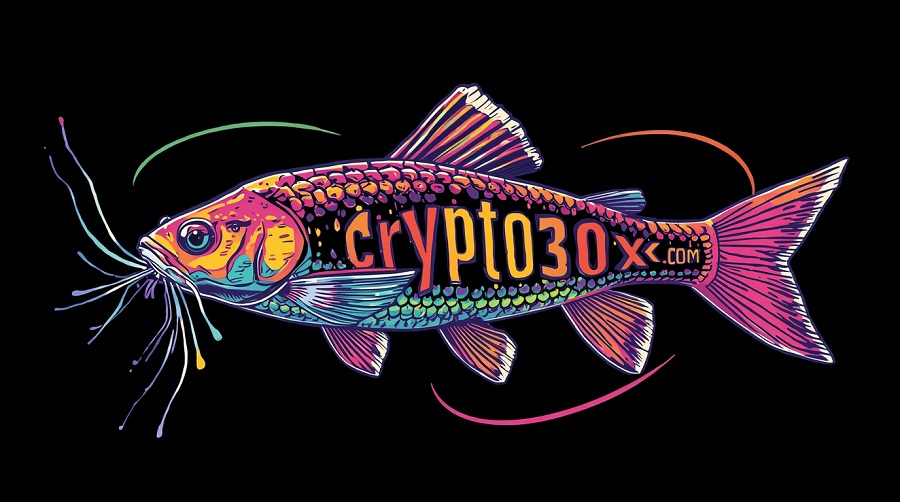In the fast-changing world of digital investments and online platforms, new terms frequently emerge that capture both curiosity and caution. One such phrase that has started to gain attention is “Crypto30x.com Catfish.” To understand this, one must not only break down the elements of the phrase but also investigate the broader digital context in which it exists. Catfishing, in its traditional sense, has long been associated with deception in online communication, usually in the world of social media and relationships. However, when paired with the crypto landscape and a platform like Crypto30x.com, the concept takes on new dimensions. This article will explore the meaning, implications, risks, and lessons tied to the notion of catfishing in the crypto world, giving readers a full understanding of what is at stake when trust and technology intersect.
Understanding the Foundation of Crypto30x.com
Before delving into the catfish element, it is important to establish what Crypto30x.com represents. As with many emerging crypto-related platforms, Crypto30x.com positions itself as a space that can multiply investments, often promising high returns that appeal to both novice and seasoned traders. The “30x” in its name signals the ambition or claim of delivering exponential growth, a factor that can both entice and alarm users. Platforms like these thrive on digital visibility, community trust, and the ability to maintain a balance between bold claims and actual delivery. Yet, whenever high returns are advertised, the possibility of manipulation or misrepresentation cannot be ignored. This is where the connection to catfishing begins to unfold, as deception becomes a potential element of the experience.

The Evolution of Catfishing in the Digital World
The term catfish originally became popular in online dating contexts, where an individual would pretend to be someone else, often using stolen pictures and fabricated stories to create a false identity. This deception often led to emotional and sometimes financial harm for those who fell victim to the ruse. Over time, catfishing has evolved beyond personal relationships and seeped into professional, social, and financial spaces. In the crypto world, catfishing can involve creating fake trading profiles, fraudulent investment opportunities, or entire platforms designed to appear legitimate but are in fact misleading. The combination of anonymity, digital wallets, and the complexity of blockchain systems creates fertile ground for catfishing-style strategies.
What Does “Crypto30x.com Catfish” Really Mean?
When people refer to “Crypto30x.com Catfish,” they are generally pointing toward the possibility that deceptive practices could be associated with the platform or experiences tied to it. This does not automatically mean that the site itself is fraudulent, but it highlights the perception or risk that users could encounter misleading information, fake profiles, or false promises. A catfish in this context could be an individual posing as a successful investor to lure others in, a social media presence that pretends to represent the platform, or even promotional campaigns that exaggerate the earning potential. Understanding this phrase requires readers to think of catfishing not just as personal deception but as a metaphor for the wider risks of misrepresentation in online investments.
The Psychological Appeal of High Returns
One of the reasons platforms like Crypto30x.com can be associated with catfishing is the psychological draw of extraordinary profits. People are naturally attracted to opportunities that promise to multiply their wealth quickly, especially in the volatile world of cryptocurrency where stories of overnight millionaires circulate constantly. This creates an environment where investors may suspend their skepticism in pursuit of the dream. Just as in personal catfishing scenarios where victims overlook red flags because they want to believe in the relationship, investors in the crypto world may ignore warning signs because they want to believe in the potential returns. This parallel is what makes the term catfish so relevant when applied to the world of crypto trading platforms.
The Role of Social Media in Crypto Catfishing
Social media plays a central role in spreading both trust and deception. Influencers, discussion groups, and promotional accounts often shape how people perceive platforms like Crypto30x.com. However, catfish accounts can emerge that impersonate legitimate users, fabricate success stories, or post screenshots of supposed earnings to convince others to join. These tactics mirror the strategies of traditional catfish who use fake photos and fabricated lifestyles to lure victims. By presenting a crafted narrative of success, these accounts can build momentum and lead newcomers to believe in opportunities that may not exist. This blending of genuine and fake narratives makes it difficult for an outsider to distinguish between reality and manipulation.
Signs of a Potential Catfish in the Crypto World
In personal relationships, signs of a catfish might include refusal to video chat, inconsistent stories, or reluctance to meet in person. In the crypto world, the signs shift to suspiciously high promises, lack of transparency about team members, unverifiable testimonials, and sudden pressure to invest quickly. On platforms like Crypto30x.com, investors need to carefully examine whether the information provided is consistent, whether the returns are realistic, and whether communication channels are genuine. The absence of verifiable third-party audits or clear contact details can also be a red flag. By drawing parallels with traditional catfishing behavior, investors can develop a sharper instinct for identifying when something might not be what it seems.
The Consequences of Falling for a Crypto Catfish
Falling for a crypto catfish can have devastating consequences, often far more severe than emotional deception in personal contexts. Financial loss is the most obvious outcome, with victims potentially losing significant sums of money. Beyond that, reputational damage can occur if individuals publicly endorse or recruit others into a deceptive platform, only for it to collapse later. Emotional distress is another consequence, as victims may feel embarrassed, betrayed, or hesitant to trust future opportunities. The fallout of such experiences can extend into legal complications if authorities become involved in investigating the platform. Recognizing these potential outcomes is essential for understanding why the concept of a crypto catfish should not be taken lightly.
The Broader Impact on the Crypto Community
The association of catfishing with platforms like Crypto30x.com also has ripple effects across the wider crypto community. Each instance of deception erodes trust, making it harder for legitimate projects to gain credibility. Newcomers may be discouraged from entering the market, fearing scams and manipulation. Regulators may tighten their oversight, which could stifle innovation. Ultimately, the presence of catfishing practices undermines the decentralized ideals of the crypto movement, where transparency and trustless systems are meant to empower users. The broader community thus pays a price when catfish behavior infiltrates prominent platforms.
Strategies to Protect Against Catfish Experiences
The best defense against falling victim to a crypto catfish is vigilance and education. Just as individuals learn to question too-good-to-be-true relationships online, investors must adopt a critical eye toward investment platforms. Researching the background of a site, verifying the team members, checking for independent audits, and engaging with established community forums can provide clarity. It is also wise to start with small amounts, test withdrawal systems, and avoid making decisions under pressure. These protective strategies help balance the excitement of potential high returns with the caution necessary to avoid deception. Ultimately, knowledge and skepticism are the most effective shields against crypto catfishing.
Why the Phrase Has Resonance
The phrase “Crypto30x.com Catfish” resonates because it encapsulates the intersection of two powerful cultural forces: the lure of crypto wealth and the dangers of online deception. It highlights the emotional and psychological aspects of investing, reminding people that trust is as much a currency as money itself. It also acts as a warning label, urging users to approach bold promises with the same caution they would use when interacting with strangers online. This resonance ensures that the term will likely continue to be used as a cautionary phrase in discussions about the platform and others like it.
Looking Beyond the Negative
While the term catfish carries negative connotations, it can also be used constructively. By openly discussing the risks of deception, communities can build stronger defenses against it. Platforms that genuinely want to differentiate themselves can use transparency and education as tools to combat the association. By acknowledging the dangers of catfishing in crypto, legitimate actors can foster an environment of trust and resilience. This dual role of the term—as both a warning and a motivator for better practices—means that it can ultimately contribute to a healthier digital ecosystem.
The Future of Crypto Platforms and Trust
As the crypto industry matures, trust will remain a central issue. Platforms like Crypto30x.com will need to find ways to prove their legitimacy, not just through marketing but through verifiable practices. Users will need to continue sharpening their instincts and learning from past experiences with deception. Regulators and watchdogs will likely develop more tools to identify and shut down fraudulent operations. The concept of the catfish will remain relevant, serving as both a reminder of the dangers of online anonymity and a call for greater responsibility in digital spaces. The future will depend on whether the community can balance innovation with integrity.
Conclusion
The phrase “Crypto30x.com Catfish” is more than just a catchy label. It reflects a deep and growing concern about deception in the crypto world, where the line between opportunity and manipulation can blur. By understanding the origins of catfishing, the ways it manifests in digital investments, and the strategies to guard against it, readers can equip themselves to navigate these waters more safely. Crypto offers enormous potential, but with that potential comes risk. To avoid becoming the next victim of a digital catfish, one must embrace skepticism, pursue knowledge, and never lose sight of the old truth: if something sounds too good to be true, it probably is.
FAQs on Crypto30x.com Catfish
Q1: What does the term “Crypto30x.com Catfish” mean?
It refers to the potential risks of deceptive practices associated with the platform or related experiences, where users may encounter misleading claims, fake profiles, or exaggerated promises.
Q2: Is Crypto30x.com itself a scam?
Not necessarily. The term catfish is more about the perception of deception or the possibility of misleading activity rather than a direct accusation of fraud.
Q3: How can investors spot a crypto catfish?
They should look out for unrealistic promises, unverifiable testimonials, lack of transparency, and pressure to invest quickly. Doing thorough research is the key.
Q4: What are the risks of falling for a crypto catfish?
Risks include financial loss, emotional distress, reputational harm, and potential legal complications depending on the scope of the deception.
Q5: How can I protect myself from crypto catfishing?
By researching platforms thoroughly, starting with small investments, engaging with trusted communities, and avoiding hasty decisions based on pressure or hype.



